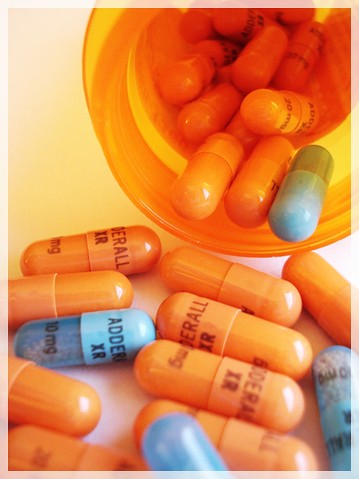
Popular press coverage has once again raised concern about the use of psychiatric medications to treat emotional and behavioral problems in children. A recent study has linked the use of stimulant medication (such as Ritalin) with 10 deaths in a sample of 564 children and adolescents who died suddenly for unexplained reasons. It's important to note that the study was unable to demonstrate that stimulant medication was the cause of the deaths. For an explanation of the study see Questions Raised About Stimulants and Sudden Death from the National Institute of Mental Health.
Each wave of negative news reports about rare side-effects increases mistrust of psychiatric medications. Previous examples include the long-standing controversy over anti-depressants' effects on suicidal thoughts and behavior. As a result, parents reject medication despite substantial evidence of beneficial effects. Parents are already concerned about whether medications are safe and effective for treating their children's problems. Sensational headlines and profiles of tragic cases only serve to raise fears and provide little helpful information. Seldom is sufficient attention paid to the larger context of risks and benefits for using, and for not using, medication. Stories that end with the usual caveat "these results may not apply to individuals" and a recommendation to "consult your physician" do little to reduce parents' anxiety and confusion.
Yet parents must rely on the professional opinions of physicians--either their child's pediatrician or a child psychiatrist. (My bias is towards the latter--see my previous post.) Research on safety and effectiveness is incomplete, especially, for newer medications. Factors that must be considered in choosing a medication include accurate diagnoses, appropriate and effective dosage, common and uncommon side effects, and interactions with other medications. The effects on children's long-term development may not be known because studies are not completed until long after approval by the U.S. Food and Drug Administration. "Off-label" use of medications that have not been approved for children or other conditions is common with little or no evidence of safety or effectiveness.
Don't get me wrong, I am not advocating the wide-spread use of psychiatric medications. I understand parents' reluctance to consider medication and I am also cautious about recommending it's use. I generally don't suggest medication unless a patient's symptoms are severe (for example, Major Depression), it's a standard treatment for a particular condition (such as ADHD), or there has been insufficient response to psychological therapies. In addition, research has demonstrated for certain conditions that medication or psychotherapy is equally effective, but it is the combination that is most effective. In any case, a careful evaluation is needed to determine what is the best course to take for a particular child or adolescent.
I also believe an underlying factor in negative public response is lack of acceptance that serious mental illness exists among children and adolescents. Popular myths continue to undermine efforts to identify and treat children before their conditions become disabling and affect their long-term development. Contrast the sometimes hysterical public rejection of psychiatric medications associated with very rare serious side effects to the continued acceptance of medications that treat "real" conditions like pain despite much more common side effects. Tara Parker-Pope's blog post Reasons Not to Panic Over a Painkiller and Dr. Rob's Tylenol can Kill are examples of more balanced responses to the recent concerns over acetaminophen.
Besides relying on professional opinions, parents can also educate themselves about psychiatric medications. Here are some good sources of information:
- Mental Health Medications - National Institute of Mental Health
- How can I get information about medications? - Mental Health America
- Medications - National Alliance on Mental Illness
- Psychiatric Medication For Children And Adolescents: Part I-How Medications Are Used, Part II - Types Of Medications, Part III: Questions To Ask - American Academy of Child and Adolescent Psychiatry
This post was featured in Grand Rounds, Vol. 5, No. 46: Emergiblog
Important topic, thanks.
ReplyDeleteThanks for your comment on Shrink Rap.
ReplyDeleteImportant topic and I can't blame parents for being hesitant about medications....though if they can help a child's suffering, this is important.
I think it's useful to note the details of the study you mention-- researches looked at the records of 564 children who had died-- 10 were on Ritalin-- this isn't a "link" it's just a fact. Nothing in the data suggest that the ritalin was a cause, may be pure coincidence. Dinah of Shrink Rap
Good point Dinah. Although we understand the difference between correlation and causation, journalists and the general public do not. It probably is best to avoid the term "link" as it could be interpreted either way. Thanks for emphasizing the actual findings of the study.
ReplyDeleteI have a question. What if a child wants to be off medication and finally does it? He/She is logical in speech, and seems to connect well, but the family members react negatively to this news and makes the child fill with shame, guilt, and low confidence. Do some of these cases exist? If so, I think family members should take medication as a second option. But if the child seems to be stable, although not completely without some symptoms, and is in the progress of getting better, then the family members shouldnt antagonize him/her repeatedly about the issue but still take it with concern. Just not in a harsher tone that would make the issue worse. What do you think?
ReplyDeleteDavid,
ReplyDeleteI'd have to agree that family members should be supportive of their child's decision if it the psychiatrist also considers it appropriate to discontinue medication. Sometimes family members are so concerned that their child will become worse without medication that they are afraid to give it a chance. It helps in these circumstances for the child and family to meet together with a therapist who can help them discuss it respectfully.